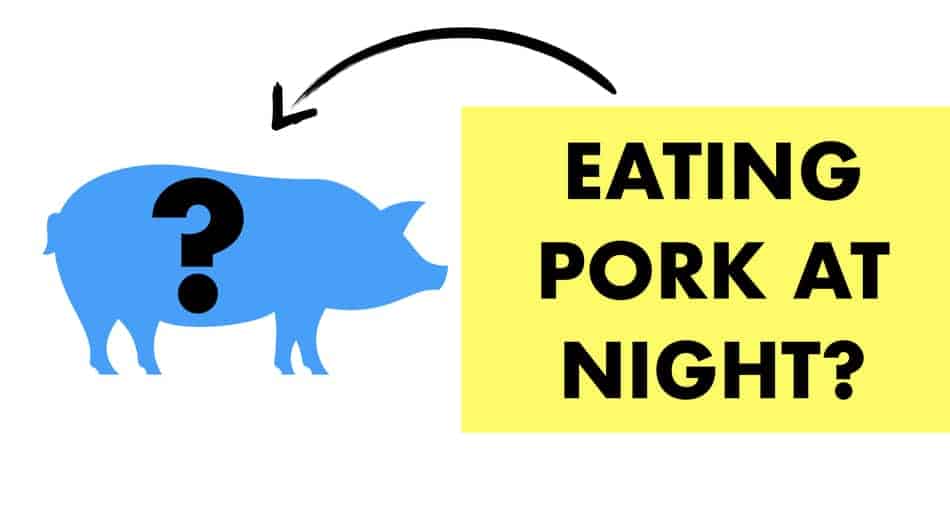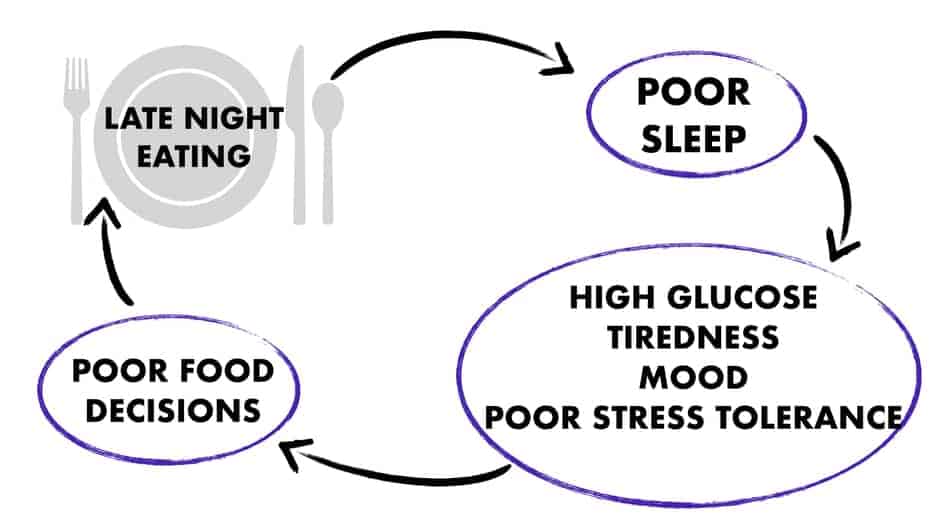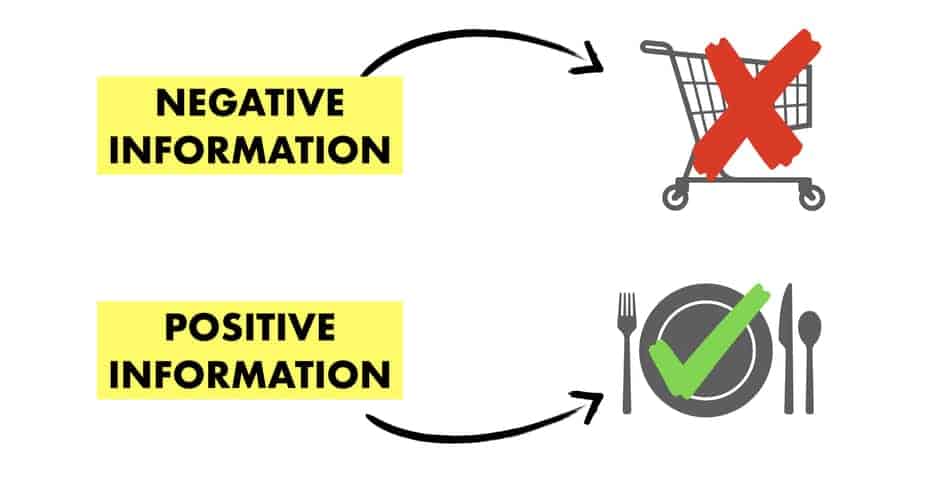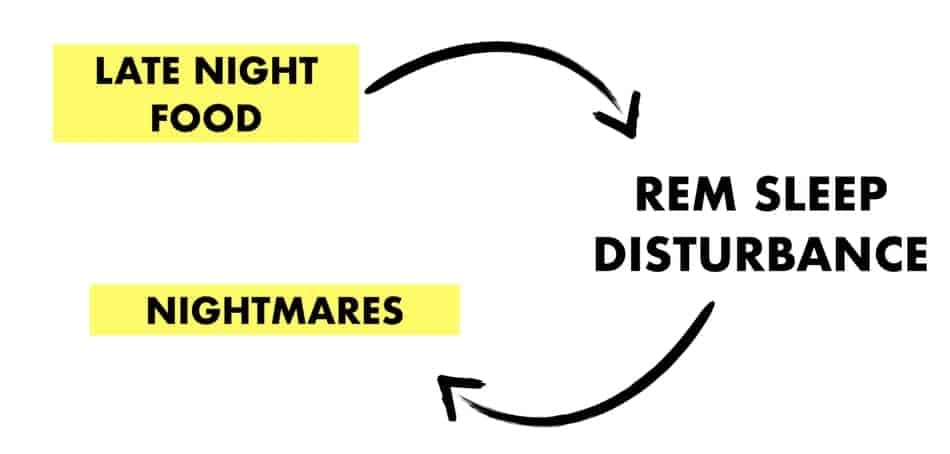
I eat pork almost daily and recently I’ve noticed a correlation between eating a meal before bedtime and having sleep problems. After researching about can I eat port at night, here’s what I found out.
You can eat pork at night because eating pork is not associated with undesirable dietary behaviors, higher BMI, higher body weight, or changes in sleep duration. However, consuming a large proportion of food at night can decrease sleep duration, influence general sleep quality, and lead to snoring.
In other words, eating large amounts of food late at night can disrupt sleep, but according to studies, there is no direct influence of pork or any other meat. In fact, pork can help you with sleep because of its amino acid profile.
Is It Bad To Eat Pork Before Bed?
It is not recommended to eat large amounts of pork before bed because it can be a risk factor for metabolic syndrome. Eating large quantities of meat before bed should be avoided because it can disturb the circadian and endocrine systems.
A lot of people have this belief that pork is somehow bad for sleep. But the truth is that eating any large meal before bed, regardless of the food composition, isn’t healthy.
So despite if you eat beef, fish, or pork.
Any food item consumed in large amount before bed won’t be good for the body. Nighttime eating has been linked with poor digestion and weight gain (source).
So it’s like this vicious cycle. Eating a large meal will cause disrupted sleep. Insufficient sleep causes hosts of adverse reactions. Mood swings, low energy, poor attention span, low-stress threshold, higher appetite, and more.
In the effect, we consume food more often, in larger quantities, and make poor decisions around food choices (source).

What exactly is insufficient sleep?
According to scholars, insufficient sleep is a disrupted sleep pattern for at least three months for most days of the week (source).
Of course, it will all depend on your schedule because many people’s work schedule allows them to only eat late at night. So the best practice is to either lower to food amount or just trying to eat earlier during the day.
So it’s not bad to eat pork at night, as long as you reduce the volume and make sure you wait a couple of hours before you sleep.
Is It Bad To Sleep After Eating Pork?
There is no correlation between bad sleep and eating pork. Pork is a high-protein food that is commonly promoted for increasing satiety and energy expenditure. However, eating large quantities of food late at night can lead to disturbance of circadian rhythms, metabolic and endocrine changes.
So there is nothing wrong with eating pork. It’s more of a perception and exposure to a vast number of conflicting information that is available on the web.
In one study, researchers exposed participants to negative information about the risks of eating pork that was available on the internet. It resulted in significant and negative perceptions of pork nutritional value, price, and they stopped consumed pork.
However, exposure to positive information about benefits resulted in positive perceptions about pork value and safety, which resulted in higher consumption (source).

So as you can see, this shows that people’s points of view strongly depend on the type of information that they receive, which can obviously impact their decisions.
It’s kind of like a plant-based vs meat eaters decade-long debate. Depending on where you’re getting your information from, you will be influenced by that opinion. And because many people don’t have access, time, education, or willingness to dive deeper into the studies and find what is working and what is the truth.
Because we are all busy living our lives, and frankly, nobody cares about spending few hours per day researching the subject. And sometimes the only source of information we have may be very misleading.
The same goes for our beliefs around food. One one the common belief is that eating pork can give you nightmares, insomnia, or bizarre dreams.
Does Eating Pork Before Bed Give You Nightmares?
Eating pork before bed in large quantities has been associated with a decrease in metabolic health and circadian rhythm disturbance. Negative effects on sleep quality can lead to disruption of different sleep stages, which can trigger nightmares.
In other words, pork is not correlated with nightmares. Eating late at night large amounts of food is related to sleep disturbance, especially with the REM stage of sleep.
The REM stands for rapid eye movement, and it’s a stage of sleep where the most dreaming and vivid imagery, including nightmares, happen. Therefore, reducing food amount before bed will help with having better quality sleep.
Related article: Is Pork Belly Good Or Bad For You?

Of course, other factors can contribute to having nightmares. If you’re chronically under stress, that can be the trigger of nightmares.
The most common causes of nightmares are higher levels of worry, depersonalization, hallucinatory experiences, paranoia, and sleep duration (source).
Does Eating Pork Cause Bad Dreams?
There is no evidence that eating pork causes bad dreams. In the 20th century, people believed that nightmare was triggered by eating a particular food, including pork. However, there is evidence that foods high in caffeine and alcohol can disturb sleep quality.
So pork has nothing to do with bad dreams. What does have an impact on dreams is food amount, sleep timing, stress, alcohol, and caffeine. I’ve already explained about the food amount, so let’s see what else can cause you bad dreams.
Sleep Timing
There are two types of sleep. One is non-REM sleep and the second one is REM sleep. REM sleep is typically associated with dreaming.
According to sleep researcher, Matthew Walker Ph.D. from the University of California, Berkeley, we dream in many stages of sleep, but dreams that we all think of, those that are narrative, emotionally loaded, bizarre, and hallucinogenic all come from REM sleep (source).
REM sleep usually happens in the second half of the night. So people who are going to sleep late at night and wake up in the late morning will bank most of their sleep during this REM stage of sleep, the most dream-rich stage.
On the other hand, people who go to bed early on will sleep through the first stage of sleep, non-REM or deep sleep.
Stress
Another reason for bad dreams is chronic or even traumatic stress. If you’re exposed to a high amount of stress, anxiety, uncertainty, or depression, the REM stage acts almost like a soothing balm on the emotions.
It tries to take the sharp edges of those experiences. So when you wake up the next day, you don’t feel anything close emotional to what you’ve been before (source).
So in other words, it’s not time what is healing the emotions and stress. It’s the time in the REM sleep.
Sleep is responsive, not static. This means it will respond to each day based on the stimulus. According to Dr. Walker, if you’re learning some difficult textbook material you will get a different stimulus, versus if you’d be doing a sports performance task (source).
Alcohol
Drinking alcohol changes the heart rate during the sleep, resting heart rate goes up during the following day, respiratory rate goes up and core body temperature goes up.
This as you can imagine will significantly impact REM sleep. People think that alcohol helps them sleep better. But in reality, it only offers to lose consciousness faster, but sleep becomes more fragmented and disturbed (source).
eating pork has nothing to do with bad dreams. But overeating, sleep timing, and consumption of caffeine and alcohol has.
Related article: Can You Drink Alcohol On OMAD?
Does Eating Pork Cause Insomnia?
Eating pork does not cause insomnia. Pork is a protein-rich food source that is high in tryptophan, the precursor of two neurotransmitters relevant for circadian rhythms, serotonin, and melatonin. High amounts of serotonin and melatonin are necessary for the regulation of sleep and wakefulness.
So it’s the other way around. Pork is one of the richest sources of an amino acid called tryptophan. Tryptophan is one of the essential amino acids, a precursor of serotonin and melatonin.
Therefore, it is linked with the suppression of depressed and anxious moods (source).
So in other words, more tryptophan help us to sleep better, not worse.
Related Questions
Why do I have nightmares when I eat pork?
Eating pork is not associated with nightmares, bizarre or disturbing dreams. However, sleep disruption can be the effect of eating close to bedtime, food intolerance (especially dairy products because of lactose intolerance), food sensitivities, caffeine, and alcohol.
Is eating pork late at night bad for you?
Eating pork late at night is bad for you because it can lead to weight gain, disturbance in circadian rhythms, and bad digestion. Avoiding nighttime eating, especially before bed has been proposed as an effective approach to improve health and body composition.
